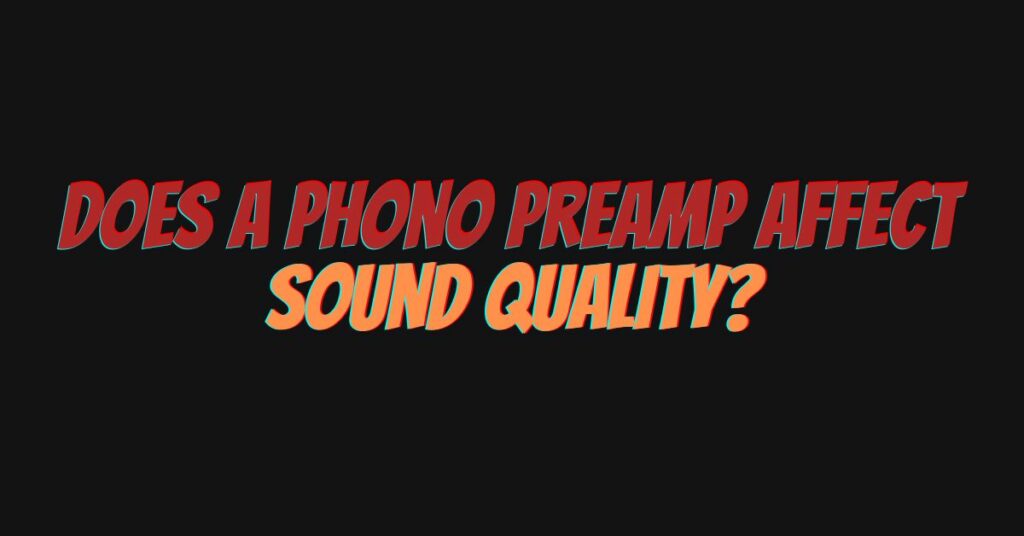For vinyl enthusiasts and audiophiles, the vinyl revival has brought about a renewed appreciation for the warmth and character of analog sound. In the vinyl playback chain, the phono preamp plays a crucial role, but does it have an impact on the sound quality? In this article, we will explore how a phono preamp affects sound quality and the factors to consider when choosing one.
Understanding the Phono Preamp
A phono preamp, also known as a phono stage or phono preamplifier, is a necessary component in any vinyl playback system. Its primary functions are:
1. Amplification: Vinyl records produce a very low-level signal, so a phono preamp is used to boost this signal to line level, which is suitable for an amplifier or receiver.
2. Equalization (RIAA Correction): Vinyl records are recorded with a specific equalization curve (RIAA) to compensate for the limitations of the medium. The phono preamp applies the inverse RIAA curve to restore the audio to its original, flat response.
Impact on Sound Quality
The choice of a phono preamp can indeed have an impact on sound quality, and several factors influence this impact:
1. Signal-to-Noise Ratio: A high-quality phono preamp will have a lower noise floor, allowing for cleaner, more detailed sound reproduction. Lower-end preamps may introduce more background noise.
2. Sound Signature: Different phono preamps may impart their own sonic character to the audio. Some preamps are known for their warmth, while others provide a more transparent or analytical sound. The choice depends on your personal preference.
3. Build Quality and Components: Premium phono preamps often feature superior components and construction. This can result in more accurate and precise signal processing, contributing to better sound quality.
4. Compatibility with Cartridges: Phono preamps should be matched to the type of cartridge you are using. Moving magnet (MM) and moving coil (MC) cartridges have different output levels and impedance requirements, and a phono preamp should be compatible with your cartridge.
5. Adjustable Settings: Some phono preamps offer adjustable settings for gain, capacitance, and resistance. These settings allow for fine-tuning to match your specific turntable, cartridge, and preferences.
6. Power Supply and Isolation: High-quality power supplies and noise isolation in a phono preamp can further enhance sound quality by reducing interference and distortion.
7. Price and Budget: High-end phono preamps often come with a higher price tag. While they can deliver exceptional sound quality, there are also budget-friendly options that offer good performance within a limited budget.
Choosing the Right Phono Preamp
When selecting a phono preamp, consider the following:
1. Your budget and how much you’re willing to invest in your audio setup.
2. The type of cartridge you are using (MM or MC) and the preamp’s compatibility with it.
3. Your personal sound preference – whether you prefer a warmer or more analytical sound.
4. Any adjustable settings that might be necessary to optimize the performance for your specific setup.
Conclusion
In the realm of vinyl playback, a phono preamp does indeed affect sound quality. It plays a critical role in amplifying and equalizing the delicate signal from your turntable’s cartridge. While it is possible to find high-quality phono preamps at various price points, it’s important to do your research, consider your specific needs and preferences, and invest in a phono preamp that aligns with your desire for the best possible sound quality from your vinyl records. Ultimately, the right phono preamp will enhance your listening experience, bringing out the depth and character of your cherished vinyl collection.

